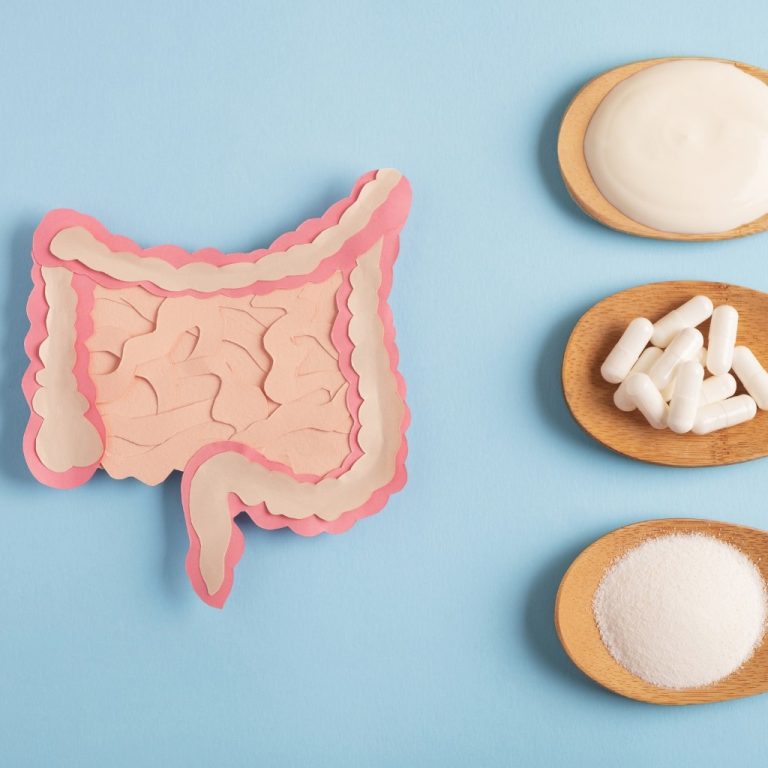Once the weather becomes foggy, gloomy and wet again, it pays off having a strong immune system. During this time, the probability of catching germs is much higher than in the warm summer months, and the cold becomes quite common. We repeatedly talk about the immune system as a part of the defensive systems in our bodies. But how does this system that protects us work and what does it protect us against?
The role of the immune system
The immune system is the biological defence system of all humans and protects us against pathogens. This defence system includes various cells, tissues and secretions. The immune system lies like a defence shield over the human body and is responsible for recognising attackers outside and inside our bodies. It even protects us against former internal “friends” by recognising them as “enemies”. This means that the immune system is constantly learning: These defence systems are either innate or are developed throughout an individuals life. The acquired defence system can differentiate between “endogenous” and “extraneous” substances. As soon as an extraneous substance (e.g., bacteria, virus or even tumour cells) is discovered, it kickstarts a process that ensures that these immunogens (a.k.a exogenous substances) cause no harm. This process is an immune reaction by the body. The acquired immune system targets this foreign substance, whereas the innate immune system reacts unspecifically. This means that the innate immune system doesn’t focus on the “attacker” but rather tries to limit the damage. The acquired immune system, on the other hand, takes a closer look. These immune responses protect the body against infections and can give us immunity against these pathogens. The acquired and innate defence systems each have their own “members” – but form a team that protects us against intruders.
How does the immune system work?

As we now know, both defence systems work together, yet they have different components and work in different ways.
The innate defence system
The job of this system is to react before a specific immune response can occur. This system includes physical barriers like the skin and its protective acidic layer or the stomach acid that eliminates foreign bodies with its low pH-value once food enters the body. If a foreign substance still manages to pass through these barriers, there are other mechanisms in place that destroy, neutralise or prevent them from spreading.
These mechanisms include monocytes, macrophages and granulocytes. All of these are cells that are capable of phagocytosis – the process of disarming immunogens (foreign bodies) by absorbing and destroying them. Then there are also the natural killer cells (NK-cells) that recognise cells that are infected by viruses or tumour cells and destroy them. Other “members” of the “innate defence system” are:
- Lysozymes destroy bacteria by breaking them down
- The blood contains an additional system that is known as the complement system. This system is activated by signals and dissolves the target cell (this process is known as lysis in literature).
- Furthermore, there are also plasma proteins (e.g., CRP – often found in blood work analyses to determine whether an infection is present) that make sure that the complement system can attack the immunogen.
- Cytokines activate macrophages and granulocytes, trigger the production of plasma proteins and prevent the production of virus particles.
In summary: The innate immune system is a peak performer and makes sure that immunogens can’t damage our bodies.
The acquired defence system
The job of this targeted system is to actively react against certain immunogens. Once an immunogen is recognised, the specific immune system is slow to react since it has to first be activated. If we come into contact with the same immunogen a second time, the body already knows what to do and reacts much more quickly. The main components of this defence system are the B- and T-lymphocytes that further differentiate once they come into contact with “their” immunogen. This means that the specific immune response becomes even more specific.
The B-lymphocytes develop into plasma cells and B-memory-cells. The job of the plasma cells is to produce antibodies. The B-memory-cells, as the name suggests, should remember the immunogens and trigger a quicker immune response once our bodies come into contact with the same immunogen again. Antibodies are produced to bind antigens and neutralise them. If certain antibodies can be detected within our bodies, then we can assume that the acquired immune system has already been acquainted with the corresponding antigen (just a part of the foreign body). Throughout this process, the body gets sick and has to produce antibodies to become healthy again. Another option is vaccinating the body and thereby boosting antibody production.
The T-lymphocytes develop into three types of T-cells:
- cytotoxic T-cells (cytotoxic meaning “poisonous to living cells”)
- T-helper cells (TH2)
- Inflammatory T-cells (TH1)
Altogether, the B- and T-cell systems work together as a team to protect the body.
The intestines and the immune system
The immune system is very complex and is spread throughout the entire body. This defence system also includes, besides the above mentioned physical barriers, the lymphatic organs. These organs are further divided into primary and secondary lymphatic organs. The previously mentioned lymphocytes are produced in the bone marrow and thymus (primary lymphatic organs). Lymph nodes, the spleen, tonsils and certain types of tissue in various mucosas of the body all belong to the secondary lymphatic organs. Roughly 80% of the immune cells are found within the mucosa of the intestines. Many different antigens (markers on substances that are recognised as foreign) enter our bodies and intestines through our food. That is why it is so essential to have a healthy intestinal mucosa with ready immune cells and an intact microbiome. In other words, the main work of the immune system takes place within the intestines. Which makes it all the more important to prepare this organ for its tasks and support it.
Another article described the role of the intestines in the immune system with the following explanation:
“The same principle applies to the immune system as it does for the intestines: The tissue of the intestinal mucosa begins its defence from the small intestinal mucosa onwards. Here, macrophage-like cells destroy all pathogens (e.g., within the food) and offer “the remains” to the T- and B-lymphocytes. T-helper cells produce the right balance of pro-inflammatory cytokines (interleukins) while the B-lymphocytes work on the dismembered foe: By producing immunoglobin A, the lymphocytes destroy the remains and prevent them from entering the intestinal mucosa.”
The immune system and its operational capacity rely heavily on healthy intestines. This means that a balanced bacterial colonisation in the intestines can strengthen the immune system and give the attackers no chance of entering.
If you support your intestines, then you are also supporting your immune system. The ideal support is a multispecies probiotic with selected bacterial strains. Bifidobacterium animalis W53, Lactobacillus acidophilus W55, Lactobacillus salivarius W57, Enterococcus faecium W54, Lactococcus lactose W58 and Lactobacillus casei W56 are six human bacterial strains that make it difficult for foreign germs to propagate and remove harmful substances and toxins.
Prebiotics provide the body with valuable fibres as a source of food for Bifidobacteria and Lactobacilli. Two of the main ingredients being resistant starch and acacia-fibres extracts. The resistant starch stimulates the propagation of important Bifidobacteria and Lactobacilli, the production of short-chain fatty acids for more energy, and an increase in biomass (i.e. the amount of faeces and the resulting improved bowel movements). Acacia-fibre extract (fibre gum) is a soluble fibre that is won from the dried sap of the acacia tree and is scientifically very well tolerated. Furthermore, the barrier function is supported by maintaining the function of the mucosa with the help of B vitamins (Vitamin B2 and B3). Calcium also plays an important role in the normal function of digestive enzymes. The vitamin D and zinc within the prebiotics also help support the normal function of the immune system.
Probiotics reinforce the good intestinal bacteria and help create the optimal environment for them to thrive in. The intestines can more easily complete their jobs through the intake of probiotics and subsequently thank us by strengthening our defence systems.
Strengthening the immune system
There are other ways to prepare for the upcoming “cold” season besides supporting your intestines.

- Wash your hands!
Germs are often passed on via the hands. Careless handshaking or touching public objects in everyday life is often enough to get our defence system working. Wash your hands regularly and avoid touching your face with your hands. - Air regularly
By opening your windows and doors, you can replace the air in the room. Fresh air isn’t only richer in oxygen, it also acts as a kickstart for the immune system. - Avoid crowds
The more people there are in a room, the higher the likelihood of getting infected by airborne droplets. - Avoid stress
The body produces fewer antibodies when stressed, which leads to a weaker immune response. Taking regular breaks and relaxing can help the body recover. - Warm/cold
The constant change between warm and cold temperatures stimulates blood flow. But be careful if you already have a cold. Going to the sauna and taking cold showers should only be used to preventively strengthen the immune system. - Exercise out in the open
Just like taking a cold shower, exercise also gets the circulation going. The WHO recommends 150 minutes of exercise per week. To strengthen the immune system, it is best to also exercise outside. It is important to note that you should choose the appropriate clothing and exercise according to the time of the year. - Sleep
Our bodies regenerate the most when we sleep. Our defence systems are, therefore, dependent on the quality and quantity of our sleep. Sleep keeps the body fit and protects it against “intruders”. It also releases immuno-active substances that strengthen the defence system.
Many household remedies also supposedly strengthen the immune system. These include ginger-shots, onions and golden milk. You can already find ginger shots in many different supermarkets but they are also easy to make at home. The spicy substances in ginger stimulate blood flow which removes pathogens more quickly from our bodies. Golden milk gets its name from the golden colour of kurkuma. Kurkuma and honey are often combined and have an antibacterial, antiviral and anti-inflammatory effect.
Onions are a traditional household remedy for many different “problems” – including colds. The substances within onions are anti-inflammatory and are used against the many side effects of colds, ear-ache and coughing.
However, you should always consult an expert when in doubt. Medical experts, dieticians and sports scientists usually find the right way to make it through the cold season healthy and full of energy. Listen to your gut feeling, since 80% of your immune system calls it home and stay healthy!
About the author

Dipl.-Ing. Anna-Lena Kollos, MA (a.k.a Lela) began her education as an athletics coach after her studies (Biotechnology, Food Technology and Public Affairs), completing all the courses with distinction by autumn 2019. Thanks to her work as a personal trainer and communication consultant with a focus on health-related topics, she closely analyses her gut feeling. As such, she focuses on a holistic and long-term approach, which is necessary to achieve her individual goals – in training, as well as in communication. Lela has paid close attention to her gut feeling for many years and has trusted it on many occasions. Because of her diverse education and experiences, the personal trainer can rely on her vast Know-How.
Photo credit: Marie&Michael Photography



























